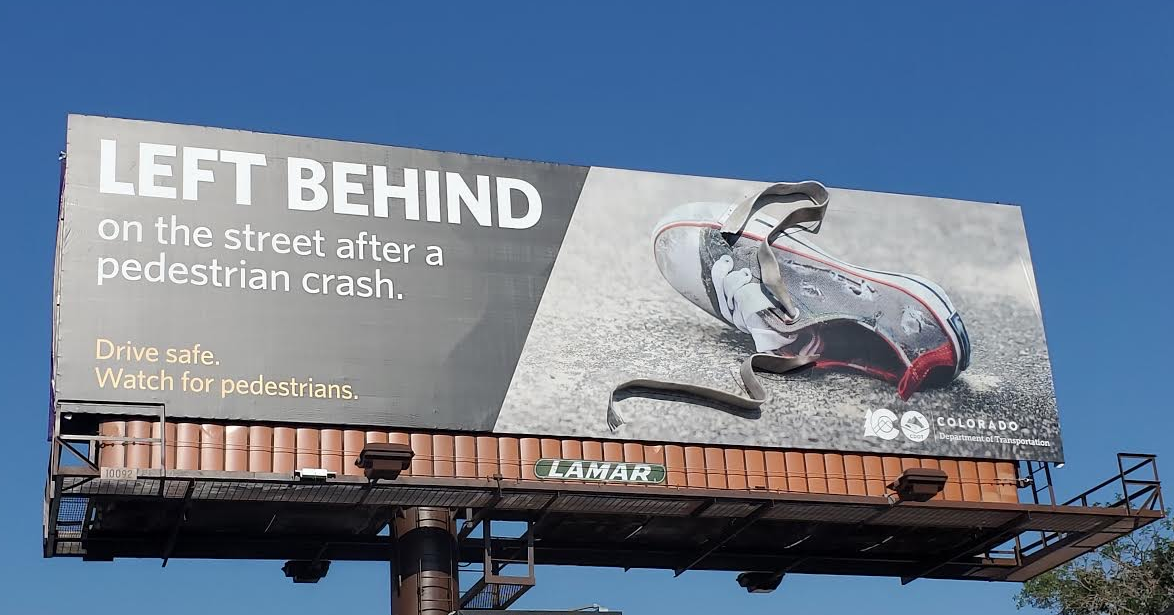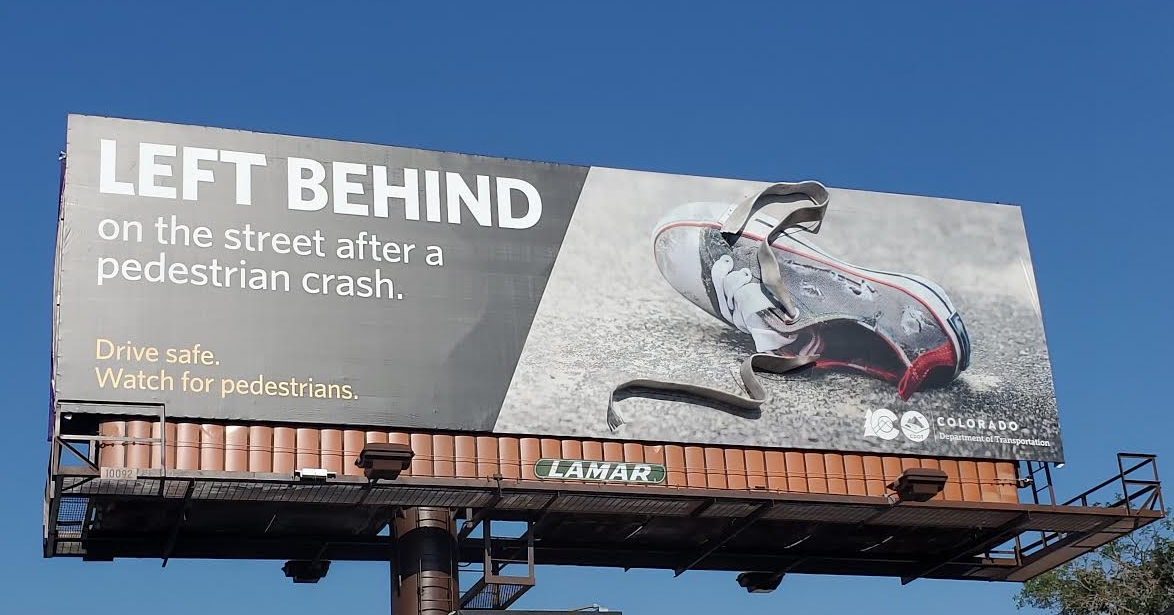Judge dismisses First Amendment challenge to new Colorado billboard law

A federal judge has dismissed a lawsuit from two outdoor advertising companies who claimed the Colorado Department of Transportation’s rules for roadside signage amounted to a First Amendment violation through regulation of the signs’ content.
In reality, determined U.S. District Court Senior Judge R. Brooke Jackson, state law regulates billboards based on whether they are purchased advertising, and not for the messages they convey.
“Here, Plaintiffs can continue to express their message if they apply for a permit or erect signs without receiving compensation,” Jackson wrote in a Dec. 6 order.
Under federal law, states regulate advertising along interstate highways. Prior to this summer, Colorado required permits for certain “advertising devices.” An exception to that rule were so-called “on-premise” advertising devices, meaning signs placed on a development or property and advertised for that specific property.
In June 2021, the governor signed into law an update to the Outdoor Advertising Act. The legislation redefined advertising devices to include any paid-for roadside display regardless of content. The law eliminated the exception for on-premise advertising, and instead established that any advertising device that is “part of a comprehensive development” is not covered by the regulations.
During the General Assembly’s consideration of the legislation, one of the sponsors, Sen. Rachel Zenzinger, D-Arvada, alluded to lawsuits against other states or localities for their billboard regulations, also on First Amendment grounds. In one high-profile instance, a 2015 U.S. Supreme Court decision declared it unconstitutional for the town of Gilbert, Ariz. to restrict temporary directional signs for churches and other events.
“This bill is a result of a court case,” acknowledged Andy Karsian of CDOT. “It will make it very clear that there is no content determination when we permit billboards. Instead of looking at whether they are on- or off-premise, we are going to take a look at compensation.”
Two companies that sell advertising space on outdoor signs – StreetMediaGroup, LLC in northern Colorado and Turnpike Media, LLC of Denver – filed a lawsuit in December 2020 under the old set of rules. CDOT’s prior permitting scheme, they argued, “censors the Plaintiffs’ speech by requiring permits for the display of certain messages.”
After the changes to the Outdoor Advertising Act, the companies maintained the new rules still amounted to content-based regulation of speech in violation of the First Amendment.
“[I]f a CDOT enforcement officer did not like a certain message (say, a political message, or a message that was critical of CDOT) that is displayed along a federal-aid highway,” the amended lawsuit argued, the new law “authorizes that CDOT enforcement officer to, among other things, demand production of private and proprietary financial and contract documents from the sign owner, just to figure out whether the sign is an ‘advertising device.'”
Such “highly-intrusive” investigations, the plaintiffs added, would have a chilling effect on speech expressed through the roadside signage.
The government moved to dismiss the case, largely on procedural grounds. In particular, they pointed out that CDOT denied StreetMediaGroup’s permit application shortly after the new law went into effect not because of the updated rules, but because the company’s paperwork was incomplete.
Jackson determined that the newly-updated law and CDOT’s rules did not amount to a content-based regulation of speech.
“At best, the complaint alleges that the current act’s purpose was to regulate, in a content-neutral manner, signs and billboards previously regulated by a content-based law,” the judge wrote. “But it does not allege, as it must, that the current act’s purpose is to regulate those same billboards because of their content.“
Even if there had been a plausible First Amendment challenge, he added, the regulations would be constitutional if they were narrowly-tailored and served a significant governmental interest. Preventing crashes in which drivers are distracted by roadside signs, Jackson explained, was a legitimate reason for having billboard regulations.
He also rejected the plaintiffs’ claim that the new definition of “advertising devices” was so vague that enforcement officers would apply the law arbitrarily when looking at billboards.
“The touchstone of vagueness, however, is the ability to understand what conduct is prohibited,” Jackson wrote. “For example, automotive experts cannot, by studying a picture of a car, determine whether it meets emissions standards. But that does not mean that emissions standards are incomprehensibly vague. Similarly, a CDOT employee’s inability to predict, based on sight alone, whether a sign was erected for compensation and is therefore an ‘advertising device’ does not mean that the definition of ‘advertising device’ is incomprehensible.”
Other states that have revised their own billboard regulations in reaction to content-based concerns have adopted the compensation requirement for permitting signage. Daniel R. Mandelker, a professor of law at Washington University in St. Louis, has written that court decisions, the emergence of digital billboards and even the federal highway regulations themselves have made signage regulation tricky.
“Free speech law creates a complicated challenge for local governments. They must strike a balance in sign ordinances that can protect the aesthetic environment and improve traffic safety while also protecting the special claims of free speech,” he said.
The case is StreetMediaGroup et al. v. Stockinger et al.













